Real estate is a key sector of the national economy in China. Given recent adjustments in real estate market, it is imperative to establish a new sustainable real estate growth model, as well as an efficient financial model to mitigate systemic risks and support the industry's steady growth.
On May 21st, 2023 Tsinghua PBCSF Global Finance Form was held in Beijing, with plenary session V focusing on "Building a New Sustainable Real Estate Finance Model". The session speakers participated in an extensive discussion focusing on building a new real estate finance model, and offered a number of policy suggestions on facilitating the smooth transition of the industry into a mode consistent with high-quality economic development. Dr. WEI Chenyang, Deputy Chair of THUIFR and Chairman of PBCSF Global Forum for Real Estate Finance, moderated the session.
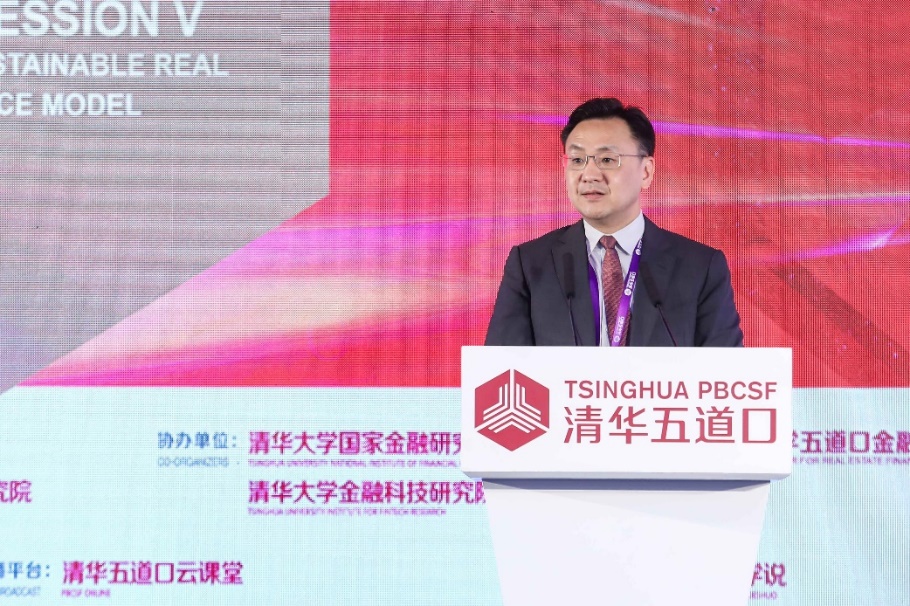
Dr. WEI Chenyang moderated the session
The session was held in the form of a Roundtable Dialogue, which included five distinguished speakers, including Prof. LIU Hongyu, Professor in Real Estate & Construction and Director of Institute of Real Estate, Tsinghua University, Mr. LU Gang, President of Jianxin Rental Housing Fund, Mr. GAO Xiaoyang, Senior Managing Director of CPIC Capital Co. Ltd and General Manager of CPIC Real Estate Co. Ltd, Mr. HE Qicong, Vice President of Dalian Wanda Group and Mr. ZHOU Yisheng, Deputy Director of Research Center for Real Estate Finance, Tsinghua PBCSF, and Co-founder & Managing Partner of GoHigh Capital. The panel engaged in an in-depth discussion on China’s real estate sector, current status and prospects of rental housing and commercial real estate market, innovation of C-REITs, the establishment of China’s real estate finance cycle. Mr. ZHANG Yu, Managing Director & Deputy Head of Research Department, China International Capital Corporation Limited (CICC), chaired the Roundtable Dialogue.
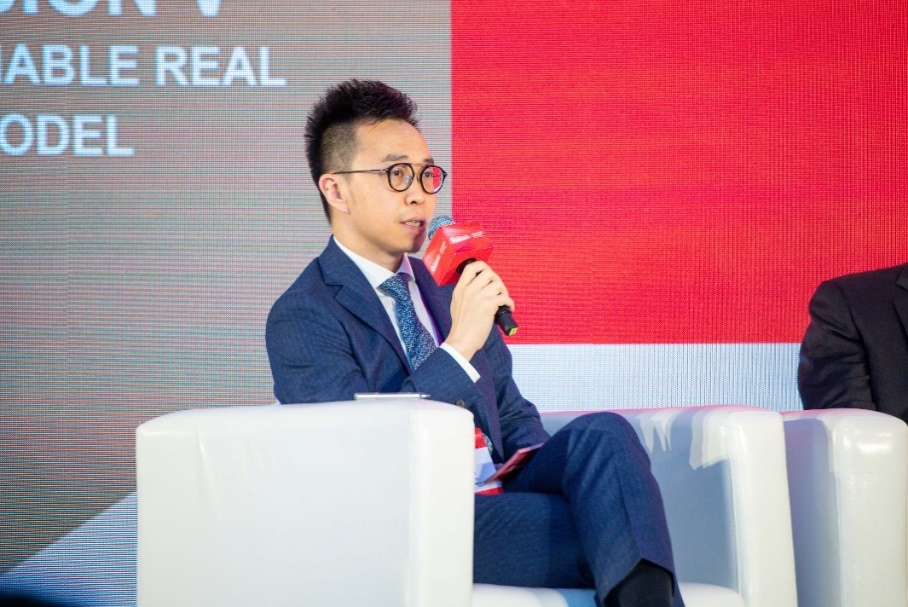
Mr. ZHANG Yu chaired the Roundtable Dialogue
Prof. LIU Hongyu, Professor in Real Estate and Construction & Director of Institute of Real Estate, Tsinghua University, presented an in-depth analysis of the current macro environment and outlined a new development model for the real estate industry. He emphasized that the economy has entered a phase of high-quality growth with slower economic expansion. With reduced urbanization rates and negative population growth, a number of cities with declining real-estate demand have emerged. In the meantime, policy environment has profoundly switched in a model of "housing for living, not for speculation”. In the future, the development of real estate industry will be concentrated on two critical aspects. Firstly, the land finance model and traditional development mode of "High leverage, High debt, High turnover" will be changed with people’s cognition that housing price never fall being fundamentally revised. As a result, overly-speculative real estate firms would be eliminated, while high-quality real estate companies with stable, rational, professional and trustworthy characteristics will seize new developing opportunities. Secondly, emerging technologies such as financial technology (FinTech) and real estate technology (PropTech) will give rise to numerous organizational forms in this industry. For instance, new technologies will enhance the liquidity of commercial real estate, improve the efficiency and reduce the cost of REITs, so as to gradually transform the industry towards a high-quality and sustainable development model.
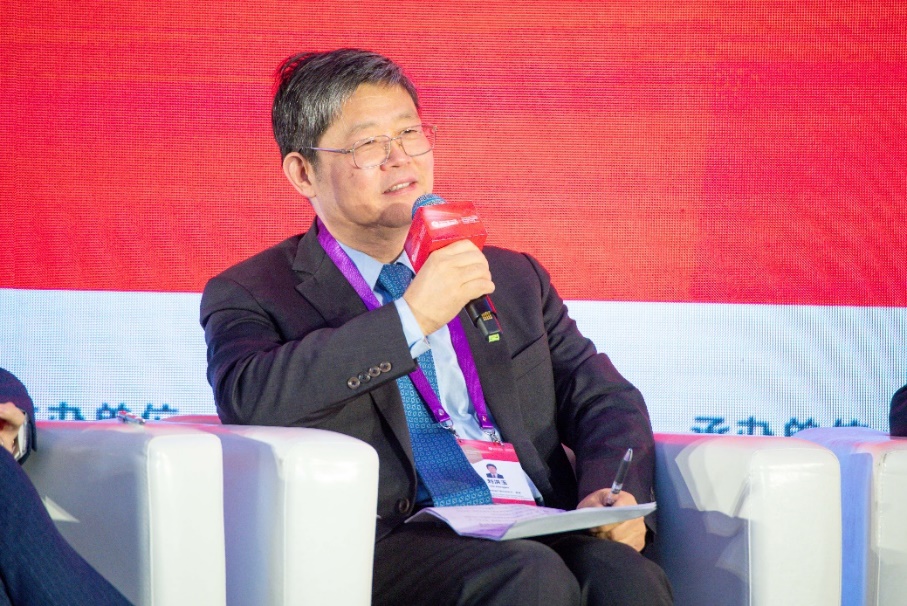
Prof. LIU Hongyu shared perspectives
Mr. LU Gang, President of Jianxin Rental Housing Fund, shared his insights on China's rental housing market. With the support of relevant national policies, China's rental housing market is growing rapidly. However, the stark mismatch between supply and demand continues to be a pressing issue. He pointed out that the surge in demand for rental housing in China can be attributed to population mobility, changing family structure and shifting perceptions, yet the current supply falls short in meeting the growing demand of new citizens and young people for higher quality of life. Consequently, job-housing imbalance has been rising notably, and there has been increasing supply-demand mismatch regarding residential location and housing quality. In the future, the market will become more inclusive, institutionalized, community-based and digitalized. Addressing the issues of high holding cost and low rental income, Mr. Lu suggested that the upfront cost can be reduced by Changing non-residential houses into rental houses, divesting self-owned residential properties from real estate companies and adding specialized leased land. Regarding the future development of REITs, Mr. Lu emphasized the need to establish long-term strategic planning, improve the pricing mechanism of REITs, facilitating asset circulation, and develop a diversified housing leasing REITs system, so as to promote more high-quality assets enter the market.
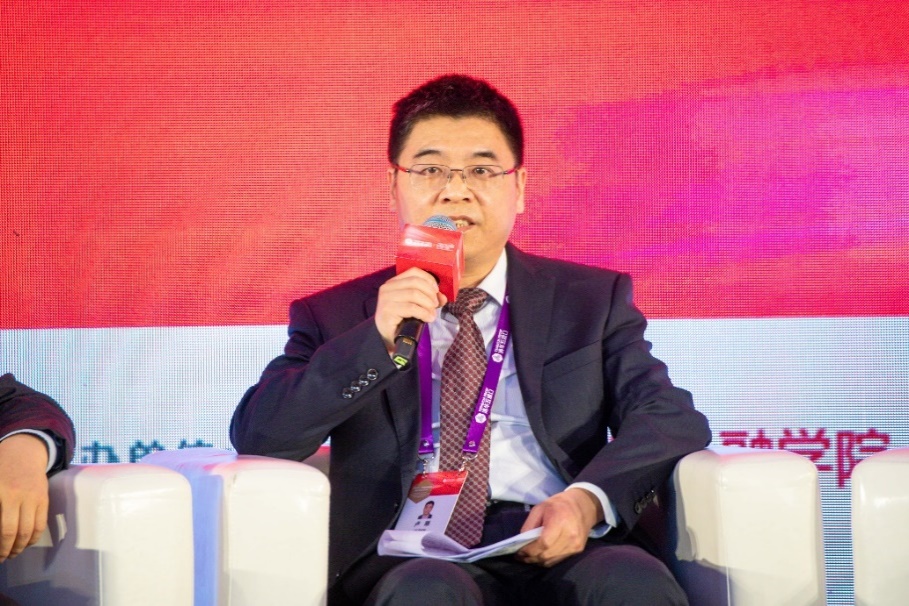
Mr. LU Gang shared perspectives
Mr. GAO Xiaoyang, Senior Managing Director of CPIC Capital Co., Ltd and General Manager of CPIC Real Estate Co., Ltd, mentioned that China's insurance capital plays an important role in the REITs market for it is not only a key investor in REITs issuing, but also a significant cultivator and supplier of underlying assets. In the future, as the supporting system and market becoming more mature, the insurance capital management companies are expected to become originators of REITs. Moreover, insurance capital could be further anticipated to become the original equity holder of REITs. Regarding the qualification of insurance management companies as ABS managers and future REITs managers, Mr. GAO highlighted three significant influences: Firstly, companies will adopt an active investment strategy, while the whole ecology of REITs will become more mature and improved. Secondly, a synergistic effect and higher allocation effectiveness will be generated while the companies becoming both "manager" and "investor". Thirdly, the issuance of public REITs enhances the liquidity of real estate and infrastructure assets in the insurance capital statement, releases incremental capital to layout and cultivate Pre-REITs assets, and accelerates the investment cycle to promote the high-quality development of the REITs market.
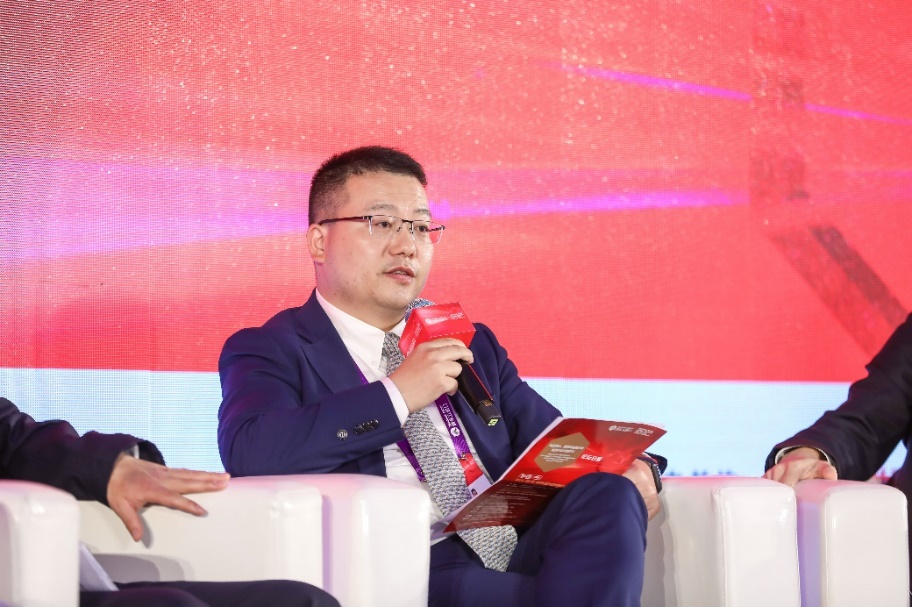
Mr. GAO Xiaoyang shared perspectives
Mr. HE Qicong, Vice President of Dalian Wanda Group, provided an overview of the current status of the commercial real estate industry and highlighted several characteristics: Firstly, the stock increases while the investment growth slows down. Secondly, the Matthew Effect becomes stronger, leading to differentiation in corporate management levels. Thirdly, there is a growing allocation into asset-light segments. Mr. He also highlighted three significant development trends in the commercial real estate industry: Firstly, various innovative financing methods like public REITs, private REITs, and private equity funds have received strong policy support, boosting the liquidity of industry assets. Secondly, with increasing segmentation and enhanced liquidity, mergers and acquisitions within the industry are expected to rise significantly. Thirdly, commercial real estate development has shifted from solely urbanization-driven to a model that combines both light and heavy assets. The industry will see broader scope of exit options, rising scale of asset under management, and a comprehensive model in development that covers funding, investment, asset management, and exit.
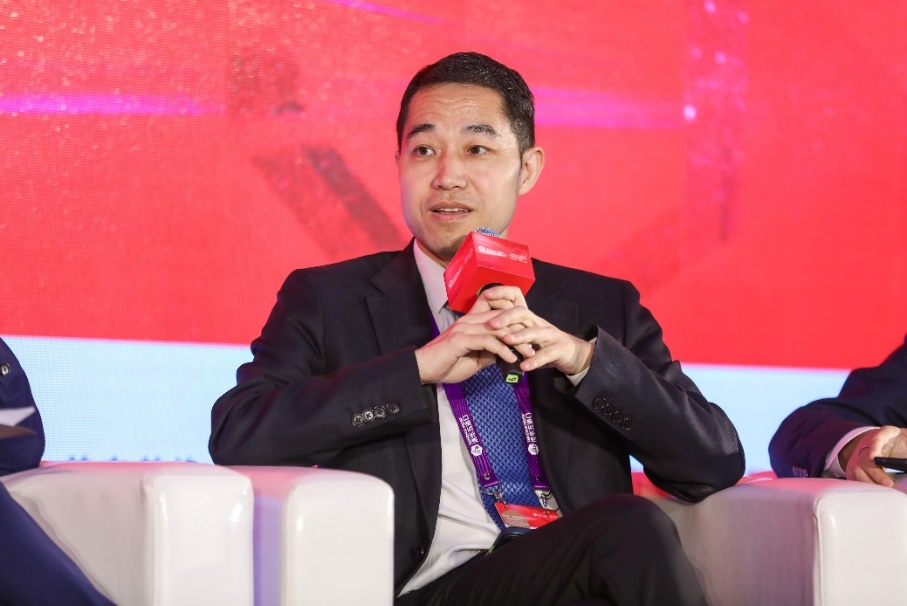
Mr. HE Qicong shared perspectives
Mr. ZHOU Yisheng, Deputy Director, Research Center for Real Estate Finance, Tsinghua PBCSF, and Co-Founder & Managing Partner of GoHigh Capital, highly commended the pilot achievements of C-REITs over the past two years. In terms of how the capital market should better discover the value and identify the risks of REITs products, he emphasized that the market needs to focus on aspects such as asset status, asset management, and the selection and disclosure of valuation indicators. He stressed the crucial importance of effective and multi-level asset management and leveraging the power and initiative of industry participants. To achieve this, he emphasized the need to promote legislation, simplify transaction structure, and to define the role of asset managers. Regarding the development prospects of the real estate related financial system, Zhou Yisheng used the analogies of "setting bridge pillars" and "building bridges", and pointed out two key building blocks: Firstly, it is necessary to develop the front-end market of REITs, particularly real estate private equity funds and private REITs, to create solid "bridge pillars". Secondly, it is supposed to address the connection between public REITs and capital in the Pre-REITs stage, such as real estate private equity funds and private REITs, to achieve the convergence of "bridges".
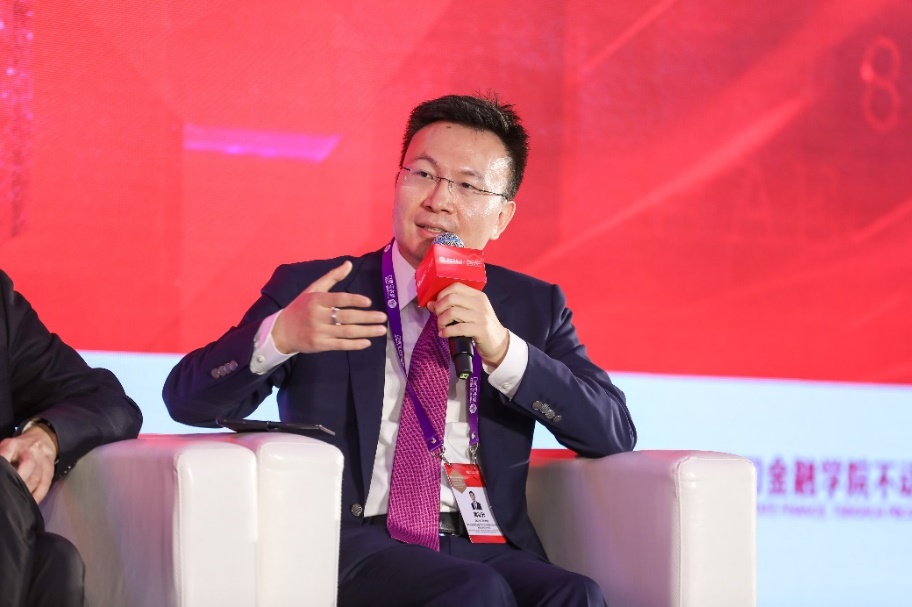
Mr. ZHOU Yisheng shared perspectives